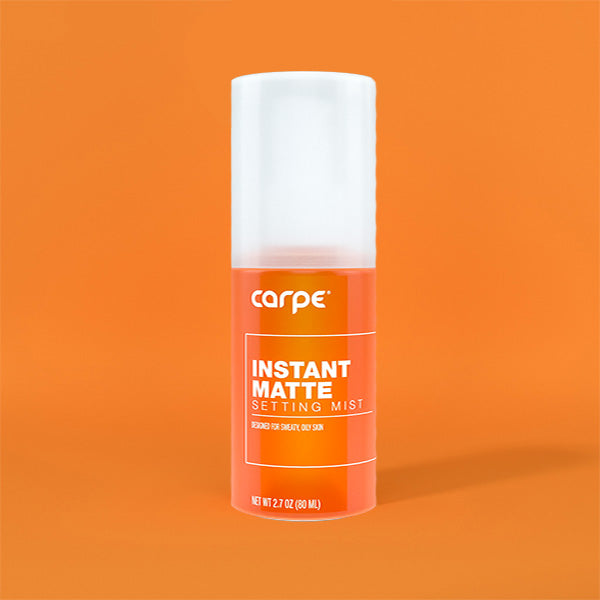Hyperhidrosis is an undertreated and underrecognized condition within the medical community. Hyperhidrosis is common, as up to 3% of the population suffers from this debilitating syndrome. While hyperhidrosis is not bad for a person's health in and of itself, the effects it has can be. It is crucial that patients have access to doctors and healthcare providers that understand their medical circumstances.[1] Patients often do not know where to turn when deciding to manage their hyperhidrosis with a doctor.
The first doctors that many patients turn to are primary care providers or pediatricians. Unfortunately, while these doctors are generally quite helpful, they often don’t fully understand how to successfully diagnose and treat hyperhidrosis. They are usually able to provide basic first-line treatment options, such as suggesting over-the-counter topical treatments, writing prescriptions and providing some basic knowledge about the condition. However, they are unable to perform most of the in-depth diagnosis and treatments plans many hyperhidrosis sufferers require. This is because they studied general medicine, which is a very broad field, and so they don’t know the details and specifics of hyperhidrosis. The good news is that there are doctors who specialize in treating hyperhidrosis, and patients can receive the specialized care they need.
The Type of Doctors that Treat Hyperhidrosis
Hyperhidrosis patients are best treated by dermatologists, or doctors that specialize in the treatment of skin and skin conditions. Often, if a general practitioner suspects hyperhidrosis and feels they cannot adequately treat it, this is the type of doctor they will refer patients to. Dermatologists are able to offer a wide range of treatments for hyperhidrosis that can be tailored to a specific patient’s needs. Some of the treatments dermatologists can offer patients include: botox injections to treat axillary hyperhidrosis, botox injections to treat palmar and plantar hyperhidrosis, iontophoresis for palmar and plantar hyperhidrosis, specific oral medications, local procedures to permanently treat axillary hyperhidrosis and surgical treatments for primary focal hyperhidrosis. There are also new treatments, like Qbrexza, a medicated antiperspirant wipe that came out in 2018. These treatment options range from conservative, non-invasive methods like iontophoresis to extensive surgical procedures. How a dermatologist chooses to treat each patient is based on the patient’s specific problem areas, the severity of their symptoms and the treatment method they are most comfortable with.[1]
In certain cases, when a patient has severe hyperhidrosis, a dermatologist may refer them to a neurologist or surgeon. Neurologists treat conditions of the brain and nervous system, and because these areas control sweat glands, sometimes neurologists are able to help in ways a dermatologist cannot. They are able to administer botox, and may be able to aid patients with overactive nervous system issues. In most cases a neurologist is not needed to treat hyperhidrosis. Surgeons are used to treat hyperhidrosis in extreme cases if surgery is deemed necessary. They are able to perform a serious surgery called endoscopic thoracic sympathectomy which can stop sweating of the palms and sometimes the axillary area. There are other surgeries, like endoscopic lumbar sympathectomy, that can be performed by a surgeon but they are not commonly used and can carry major risks.[1]
How to Find a Qualified Doctor
It is imperative that patients find a qualified doctor to manage their hyperhidrosis. Here are some qualities every hyperhidrosis patient should look for when searching for a doctor:
- They have a specialization in dermatology or are a dermatologist.
- They have experience with the treatment of hyperhidrosis and have treated multiple patients with the condition.
- They review the patient’s medical information, speak with them and understand the patient’s specific case before providing treatment.
- They are able to provide a treatment plan personalized to each patient.[1][2]
It can be difficult to find a hyperhidrosis specialist depending on where a patient lives. One of the best ways to find a specialist is to obtain a referral from a primary care doctor who knows the resources in their part of the country. If this is not an option, the International Hyperhidrosis Society provides a physician finder option on their website. They are an excellent source of medical information on hyperhidrosis and are able to connect patients with knowledgable doctors and resources.[1][3]
Resources for Hyperhidrosis Information
One of the best resources patients can use to find information about hyperhidrosis is the International Hyperhidrosis Society (IHHS) website. Their website is www.SweatHelp.org and it contains a myriad of medical information as well as a doctor search so patients can find informed doctors in their region.[1]
Thought Leaders in the Field
Some of the top leaders in the field of hyperhidrosis research and treatment work with the International Hyperhidrosis Society.[1] They have a page of the most up to date research from leaders in the field that include that include information on new treatments and the effects of hyperhidrosis on patients. The executive director of the IHHS site, Lisa J. Pieretti, is the founder of the non-profit organization. She is one of the leading philanthropic thinkers who is raising awareness about hyperhidrosis and spreading information to both patients and doctors to battle this underrecognized condition.[4] Some of the other leaders in field are the board members of the IHHS which include:
- Dr. Dee Anna Glaser: An active dermatologist and the president of IHHS.
- Dr. David Pariser: An active dermatologist, founding board member of IHHS and a professor at Eastern Virginia Medical school.
- Dr. Nowell Solish: He is an active dermatologist, founding member or IHHS and former president of the Canadian Society for Dermatologic Surgery.
- Dr. Adelaide Hebert: She is an active dermatologist, professor and founding member of IHHS.
- Dr. Trindade de Almeida: She is a practicing dermatologic surgeon who has treated hundreds of people with hyperhidrosis and a current board member of IHHS.[5]
There are many doctors around the country, and the world, that are recognizing hyperhidrosis and becoming educated in its treatments. In the US there are also some specialized clinics that specifically treat hyperhidrosis and sweating disorders. A few of these include the John Hopkins Center for Sweat Disorders and specialists in hyperhidrosis at the Mayo Clinic. These experts in hyperhidrosis are doing important work and are creating a brighter future for those suffering with this uncomfortable illness. There is ongoing research and treatments that are being developed for the future, so patients should maintain hope.[6]
Sources
- Pariser, D. M. (2014). Hyperhidrosis (4th ed., Vol. 32). Philadelphia, PA: Elsevier.
- Choose Your Doctor. (2003-2018). Retrieved August 22, 2018, from https://www.sweathelp.org/taking-action/choosing-your-doctor
- Physician Finder Registration. (2003-2018). Retrieved August 22, 2018, from https://www.sweathelp.org/physician-finder/physician-registration
- Published Scientific Research. (2003-2018). Retrieved August 23, 2018, from https://www.sweathelp.org/education-and-resources/scientific-literature
- International Hyperhidrosis Society Board Members. (2003-2018). Retrieved August 23, 2018, https://www.sweathelp.org/sweat-help-home/board-members
- The Center for Sweat Disorders. (n.d.). Retrieved August 23, 2018, from https://www.hopkinsmedicine.org/sweat_disorders/index
- Hyperhidrosis care at Mayo Clinic. (2018). Retrieved August 23, 2018, from https://www.mayoclinic.org/diseases-conditions/hyperhidrosis/care-at-mayo-clinic/mac-20367292






16790753702383.jpg?v=1679075372)

16790746985853.jpg?v=1679074700)


16790757289763.jpg?v=1679075731)












